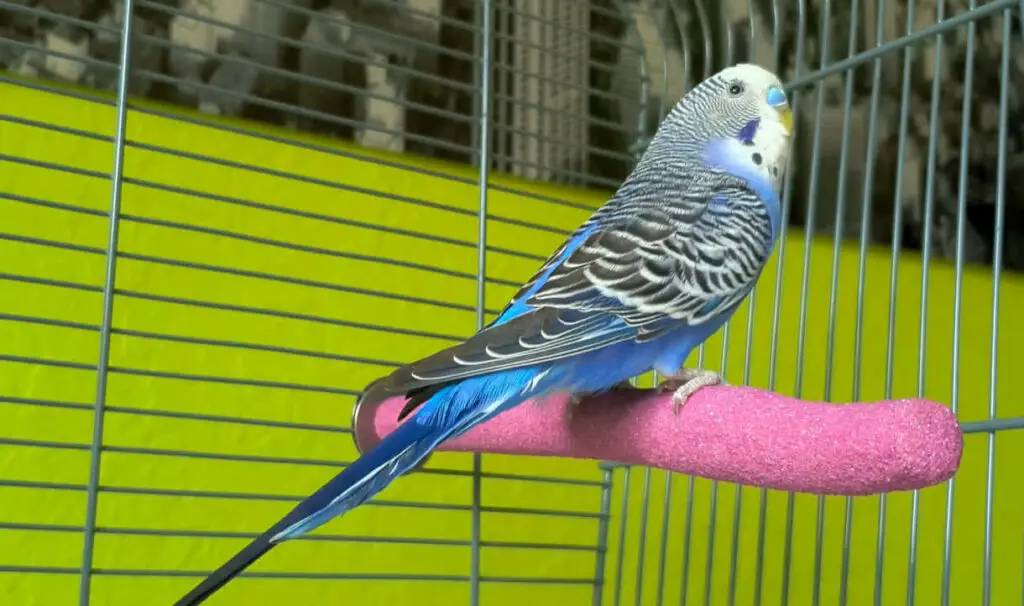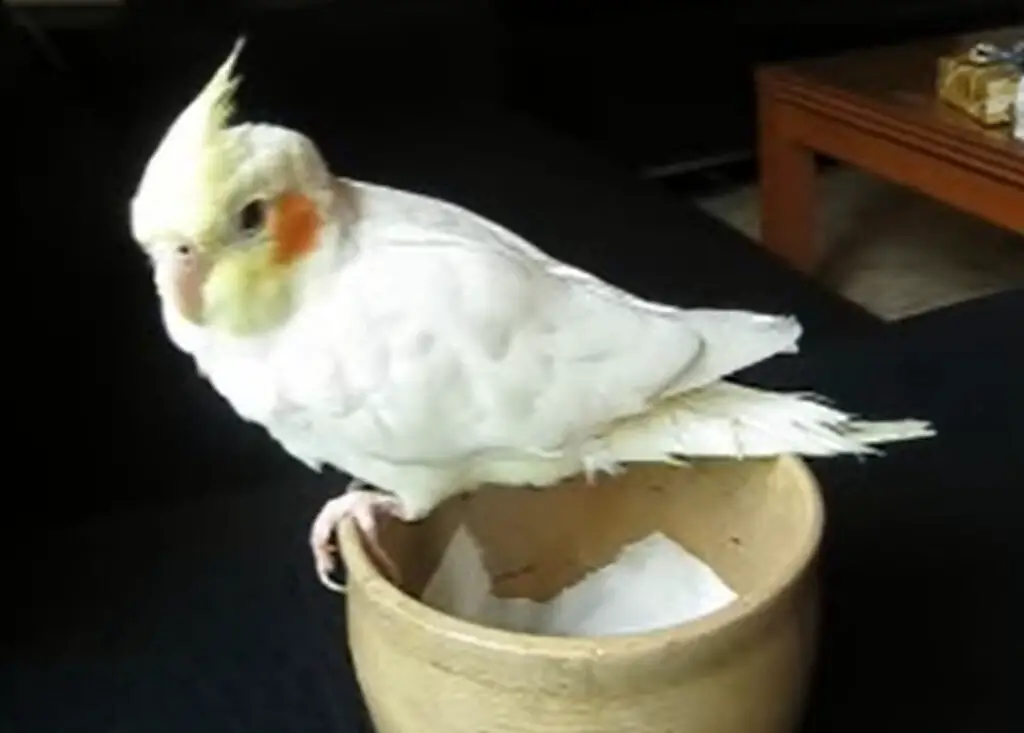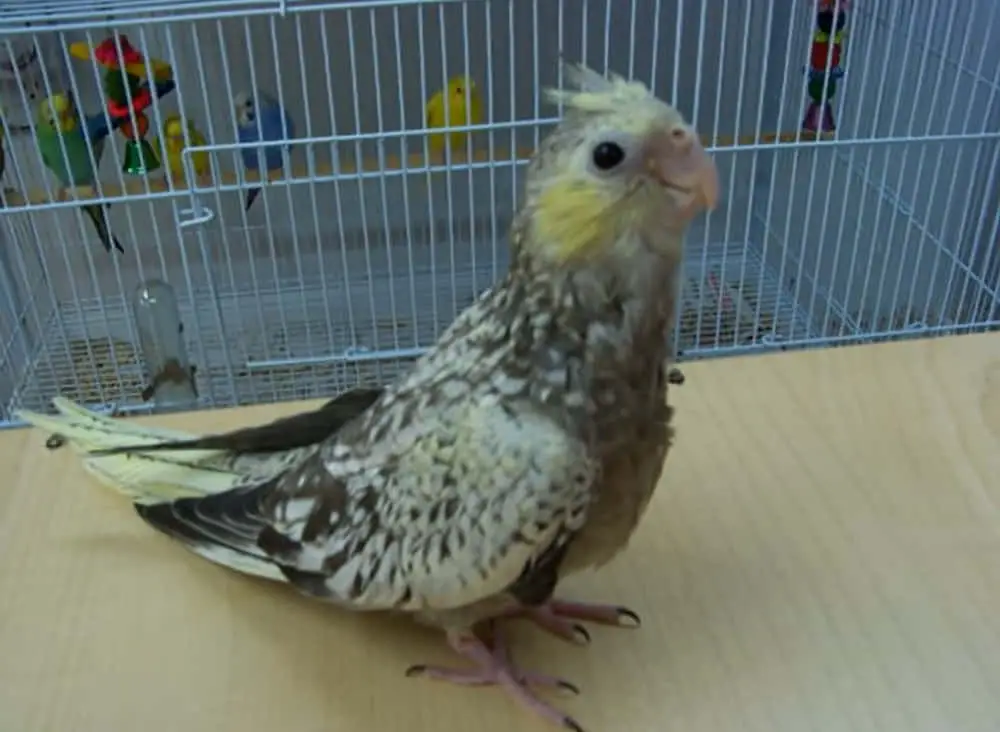Discovering your cockatiel gagging is sufficient to make you apprehensive.
In any case, it isn’t regular to search out your pet performing this manner. You most definitely would quite have your cockatiel consuming usually, taking part in peacefully, and at its regular self.
So, in the event you see some indicators of choking together with your pet, it’s most definitely alarming. Most significantly, you want to search immediate medical consideration to stop issues from going downhill.
Discover out extra about these choking points with cockatiels and what you are able to do about it. Let’s go forward and hold studying beneath.

Contents
Causes For A Cockatiel Gagging
To begin with, you might be questioning if cockatiels can choke in any respect.
The straightforward reply to that’s sure – though it’s fairly uncommon. Usually, cockatiels have airways and throats which might be designed naturally to stop choking. However then once more, choking does occur in some instances. That is usually typical amongst birds that swallow a big object – one thing bigger than what can slot in its throat.
The trachea of birds are usually longer and larger than hours. This is the reason birds can simply swallow their meals complete and never have to fret about it getting caught in any respect. However then, these birds lack an epiglottis that serves a function of protecting their tooth or trachea or their mastication muscle tissue. What they do as an alternative is to push their meals down their esophagus by way of their tongue and mouth.
But, there are situations when your pet by chance eats one thing that could be very massive, or maybe with an odd form. Therefore, this will get caught except your chook is ready to break the meals down into smaller particles.
Apparently, cockatiels have a behavior of shelling seeds previous to consuming these complete. They might additionally break a smooth fruit or strip their greens utilizing their beaks. However in case they’re unable to efficiently break the massive meals, they might choke.
Indicators Of Choking In Cockatiels
There are some indicators to pay attention to whenever you wish to make sure that your pet is certainly okay and isn’t choking.
Some frequent indicators of choking amongst cockatiels embrace:
- Wheezing
- Gasping for breath
- Distressed look
- Coughing
- Problem swallowing
- Scratching its throat
- Bobbing the pinnacle mixed with wheezing
- Flapping the wings
It is advisable pay shut consideration to your pet whenever you observe any of those indicators since you must verify if the trigger is a strong object or simply water. In case you might be sure that your pet is choking on a toy or meals, you possibly can maintain the chook the wrong way up.
Cockatiels are naturally good at consuming clunky and sharp objects with out even choking. However then once more, it might occur.
For example, if the toy is damaged, your pet might by chance break a bit off and choke on it comparable to with discarded bones, plastic toys or wooden chunks. There are some birds that don’t eat these fragments, nonetheless unintentional swallowing does occur. It’s true with toys containing beads, rubber materials, or buttons.
Even when cockatiels are of their pure habitat, they don’t usually eat bone fragments. However then child cockatiels might not know any higher and by chance eat these sharp fragments and trigger them to choke. It might probably even suffocate due to a big chunk caught in its throat.
This is the reason you want to be cautious about not giving your pet something arduous, dry or sharp. There are some meals which might be secure in your pet as a result of they’re smooth comparable to cooked greens, uncooked fruits, cooked pasta or rice, and oatmeal. Nevertheless, if you’re offering fruits, ensure that there isn’t any massive seed in any respect that may be a choking hazard in your pet.
Similar to with people, cockatiels might attempt to discuss or transfer round whereas it drinks. When this occurs, these birds are likely to aspirate the liquid and choke. Whereas it’s most definitely not very harmful in any respect, choking on water will be very uncomfortable. Your cockatiel can also be consuming an excessive amount of and too shortly whereas transferring round quick, which may trigger the liquid to get locked into the throat and result in choking.
Moreover, cockatiels are curious little creatures. They wish to play and choose something up with their beaks. This is the reason it’s best to maintain arduous objects away out of your pet comparable to jewellery, small ornaments, or buttons which will get caught in your pet’s throat.
Choking Or Coughing?
Now, you might be confused by what your pet is doing, whether it is coughing or really choking. Each actions enable your pet to clear the respiratory pathway when there may be discomfort. However coughing is because of a respiratory concern or an an infection whereas choking is brought on by an object lodged into the airway.
So, you need to verify the distinction and observe certain indicators of choking comparable to a gurgling noise and stretching the neck. It doesn’t matter what it might be, although, whether or not it’s coughing or choking, it’s best to take your pet to the vet in the event you observe this occurring repeatedly.
Learn Extra: Cockatiel Scratching Head With Foot – What It Really Means
What You Can Do
One of the best you are able to do is to remain as calm as potential and reassure your pet. Once you panic or fear, your pet can also get much more burdened. However you want to verify in case your cockatiel is choking on water, plastic, wooden, or meals. You additionally want to verify it’s certainly choking because it can be coughing.
Once you discover it’s a strong object that causes it to gag, maintain your pet the wrong way up to trigger the jaw to open and let the item fall off naturally.
When it’s liquid, hold your pet proper facet up and don’t in any respect intervene.
And most significantly, make it some extent to contact your vet immediately. You can too do some fast issues comparable to rubbing the keel bone to assist clear the throat. However if you’re not well-versed or assured sufficient to do that, it’s higher to only take your cockatiel to the vet to stop additional issues from creating.








I love both my cockatiels. They are so funny. They have such personalities that they make everyone who comes over leave smiling.